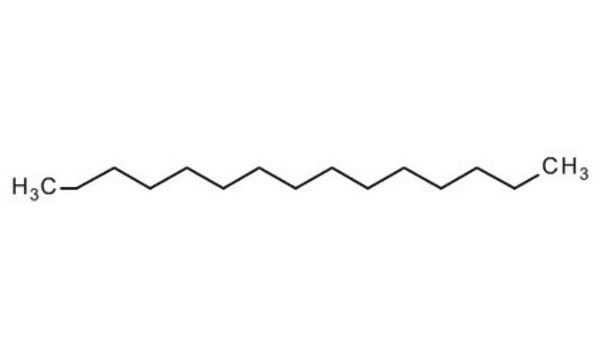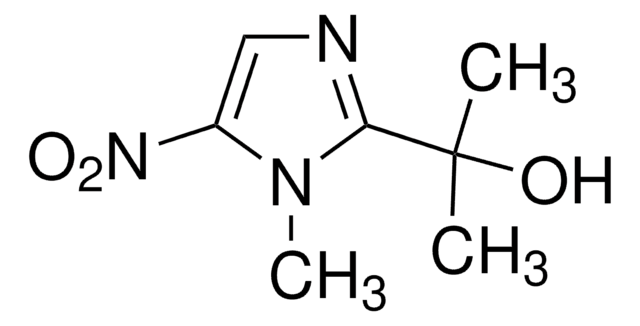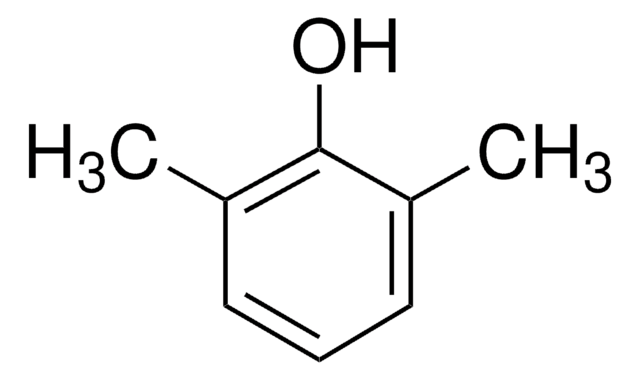76509
Pentadecane
analytical standard
About This Item
Produits recommandés
Qualité
analytical standard
Niveau de qualité
Densité de vapeur
7.4 (vs air)
Pression de vapeur
1 mmHg ( 91.6 °C)
Pureté
≥99.8% (GC)
Durée de conservation
limited shelf life, expiry date on the label
Limite d'explosivité
6.5 %
Technique(s)
HPLC: suitable
gas chromatography (GC): suitable
Indice de réfraction
n20/D 1.431 (lit.)
n20/D 1.431
Point d'ébullition
270 °C (lit.)
Pf
8-10 °C (lit.)
Température de transition
solidification point 8.5-10 °C
Densité
0.769 g/mL at 25 °C (lit.)
Application(s)
cleaning products
cosmetics
flavors and fragrances
food and beverages
personal care
Format
neat
Chaîne SMILES
CCCCCCCCCCCCCCC
InChI
1S/C15H32/c1-3-5-7-9-11-13-15-14-12-10-8-6-4-2/h3-15H2,1-2H3
Clé InChI
YCOZIPAWZNQLMR-UHFFFAOYSA-N
Vous recherchez des produits similaires ? Visite Guide de comparaison des produits
Description générale
Application
- Roasted pork of Mini-pig using gas chromatography and mass spectrometry (GC–MS).
- Yerba mate using gas chromatography–mass spectrometry (GC–MS) and gas chromatography–olfactometry (GC–O).
- Milano salami using gas chromatography with mass spectrometry (GC-MS), flame ionization detection (GC-FID) and olfactometry analysis (GC-O).
Produits recommandés
Mention d'avertissement
Danger
Mentions de danger
Conseils de prudence
Classification des risques
Asp. Tox. 1
Risques supp
Code de la classe de stockage
10 - Combustible liquids
Classe de danger pour l'eau (WGK)
WGK 1
Point d'éclair (°F)
219.2 °F - closed cup
Point d'éclair (°C)
104 °C - closed cup
Équipement de protection individuelle
Eyeshields, Gloves
Faites votre choix parmi les versions les plus récentes :
Déjà en possession de ce produit ?
Retrouvez la documentation relative aux produits que vous avez récemment achetés dans la Bibliothèque de documents.
Les clients ont également consulté
Notre équipe de scientifiques dispose d'une expérience dans tous les secteurs de la recherche, notamment en sciences de la vie, science des matériaux, synthèse chimique, chromatographie, analyse et dans de nombreux autres domaines..
Contacter notre Service technique












